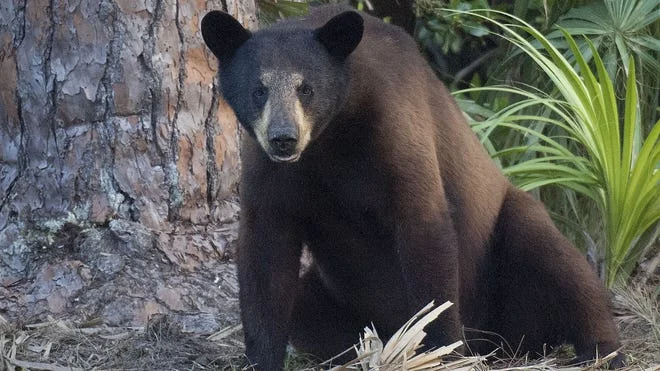
Is Hunting the Key to Taming Florida’s Wild Bear Encounters?
In the heart of Florida, a heated debate is brewing over how to handle the state's growing black bear population, especially after the first fatal bear attack in history. This spring's tragic incident has thrust wildlife management into the spotlight, raising questions about safety, conservation, and human encroachment on animal habitats. As Florida's Fish and Wildlife Conservation Commission (FWC) prepares for a pivotal meeting, the proposal to resume bear hunting after a decade-long pause could reshape the balance between people and nature.
The FWC's plan, outlined in recent proposals, suggests a limited "harvest" of black bears to control their numbers, estimated at over 4,000 across the state. Supporters argue this is a science-based approach to prevent conflicts, such as bear-vehicle collisions and intrusions into neighborhoods. Windy Johnson, a resident of Wakulla County, echoed this sentiment, stating, "We have lots of bears... they're overpopulated, and folks can't keep them out of their trash." Proponents point to the recent fatal attack in Collier County, where an 89-year-old man and his dog were killed, as evidence that population control is necessary.

However, opponents are fiercely pushing back, labeling the hunt as unnecessary and cruel. Protesters in Riverside, organized by groups like One Protest, gathered to voice their concerns, with Alexandria Molina declaring, "People are unwilling to accept the responsibility that we have to be respectful of the nature around us." They advocate for non-lethal strategies, such as bear-resistant trash containers, which have successfully reduced encounters in areas like Seminole County. Critics, including Karen Murray, an Orlando-based wildlife enthusiast, argue that humans have increasingly invaded bear habitats, not vice versa, and that hunting could lead to a "massacre" of vulnerable animals.
Looking back at the last hunt in 2015, which ended abruptly after 304 bears were killed in just two days, fears of mismanagement loom large. The new proposal aims to address these issues with random permit drawings, limiting the harvest to fewer than 200 bears in select zones, and prohibiting the killing of cubs or females with young. FWC officials plan to set annual seasons between October and December, focusing on areas with populations over 200 bears. Despite these measures, some, like Tom Mooney from Bear Defenders, call it a "trophy hunt" that ignores conservation principles.

This controversy highlights a broader tension between wildlife preservation and public safety. While hunting advocates like Mike Elfenbien from the Izaak Walton League support regulated methods as a tool for balance, opponents urge a shift toward education and habitat protection. As the FWC meeting approaches on Wednesday in Ocala, the outcome could set a precedent for how Florida manages its natural resources.
In the end, this debate isn't just about bears—it's about our relationship with the environment. Will hunting prove to be a sustainable solution, or does it risk escalating conflicts? Share your thoughts in the comments below and help shape the conversation on wildlife conservation.